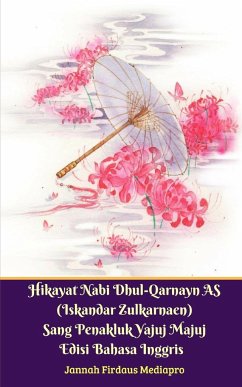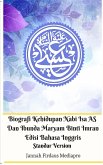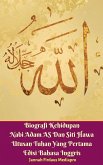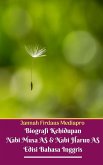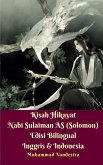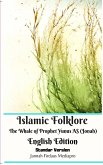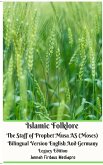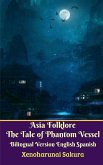Hikayat Nabi Dhul-Qarnayn AS (Iskandar Zulkarnaen) Sang Penakluk Yajuj Majuj Edisi Bahasa Inggris Standar Version. Kisah Hikayat Kehidupan Nabi Iskandar Zulkarnaen AS (Dhul-Qarnayn) Sang Penakluk Yajuj Majuj atau Gog Magog Dalam Bahasa Inggris Bersumberkan Dari Kitab Suci Al-Quran Dan Al-Hadist. Prophet Dhul-Qarnayn AS or Iskandar Zulkarnaen ("he of the two horns" (or "he of the two ages"), appears in Surah 18 verses 83-101 of The Holy Quran one who travels to east and west and erects a wall between mankind and Gog and Magog (Ya'juj and Ma'juj). Elsewhere The Holy Quran tells how the end of the world would be signaled by the release of Gog and Magog from behind the wall, and their destruction by Allah SWT (God) in a single night would usher in the Day of Resurrection (Yawm al-Qiyamah). Similarities between The Holy Quran and the Syriac Alexander Legend were also identified in recent research.
Hinweis: Dieser Artikel kann nur an eine deutsche Lieferadresse ausgeliefert werden.
Hinweis: Dieser Artikel kann nur an eine deutsche Lieferadresse ausgeliefert werden.

